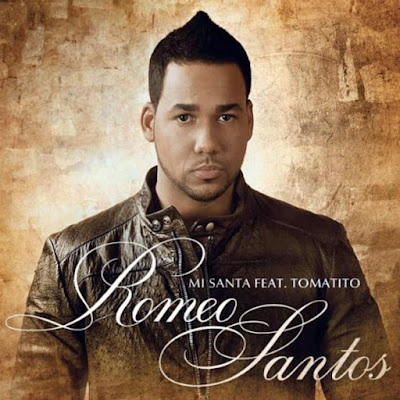15th February, 2014
I can't be sorry that I dragged my heels on this blog so long that I didn't get to this song until after the Summer of 2024 affixed a permanent asterisk to the featured artist here. Even before then, I still would not have been fulsome about his contribution -- the graceful skittering of bachata, particularly Romeo Santos' bachata, just doesn't work with the plodding whinery of Toronto's favorite son -- but in a post-"tryna strike a chord" landscape, greeting this entry in the Hot Latin #1s list with anything but resigned contempt would feel not just immoral but disloyal.
In a pre-streaming world, being #1 for 13 weeks would have been a notable achievement; in 2014, it just feels like a measure of Drake's overwhelming popularity that a song primarily in a language not spoken by most of his audience outperformed everything else in its category while he was between album cycles. Not that the headliner here doesn't matter: a perfectly adequate Romeo Santos solo song could be carved out with some judicious editing, and sold the song to the Latin audience in a way that Drake's vaguely passable Spanish verse could not have, let alone his more typically self-absorbed rap (in which he spits some of the worst game a self-declared lover boy ever has) in English.
But even with Drake excised, it's by some margin the worst song Romeo has had his name on to reach #1 -- the core thrust at the center of his lyric, "I hate the man who makes you happy," may be a relatable (though ignoble) sentiment, but everything else is just going through the motions, a generic canvas that can accommodate his guest's lazy brushstrokes.
I think I've said on this blog, a long time ago, that I was looking forward to the end of machismo and misogyny on this chart. I was a fool to think it would ever go away.
Airplay Watch:
- Romeo Santos ft. Drake, "Odio"
- Discussed above.
- Yandel, "Hasta Abajo"
- More "Danza Kuduro"-core from the pretty one of the iconic reggaetón duo, this one notable for actually featuring a jacked-up reggaetón riddim underneath the synthesized accordion and soaring AutoTune.
- Juanes, "La Luz"
- The Colombian rocker goes pop, adding synths to his acoustic guitar strumming and fast-paced mapalé dance rhythms for a kiss-me-at-the-festival song that burns bright and fades as quickly.
- Carlos Vives ft. ChocQuibTown, "El Mar de Sus Ojos"
- Shout out to the avuncular Vives for featuring my favorite Afro-Colombian hip-hop trio on this vallenato/champeta rave-up, even if Slow doesn't get a verse.
- Wisin ft. Jennifer Lopez & Ricky Martin, "Adrenalina"
- The shouty one of the iconic reggaetón duo plays generous host two famously pretty guests for another uptempo reggaetón-inflected, empty-calorie dance banger.
- Enrique Iglesias ft. Marco Antonio Solís, "El Perdedor"
- Discussed in the previous entry.
- Prince Royce, "Te Robaré"
- Another pretty-boy bachata-cum-R&B song, although this one is the best-arranged and most sincerely-delivered I've heard from Royce since his debut.






